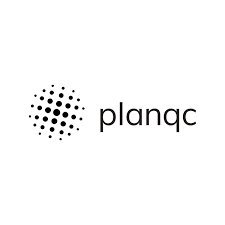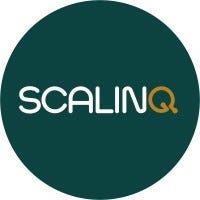The future of quantum computing is here. As quantum computing develops quickly, it will have a major impact on the future of computing. A quantum computer could transform the way we think about computing, increasing processing speeds exponentially and granting access to previously inaccessible data.
Is Quantum Computing the Present or Future?
Quantum Computing Unlocking the Future is both the present and the future. Unlike classical computing, which uses bits to represent data and perform operations, quantum computing uses qubits (quantum bits), which can exist in multiple states that are probabilistically determined, known as superposition. This will allow quantum computers to perform certain types of calculations much faster than classical computers.
While it is still an emerging technology, there have been significant advancements in the field in recent years. Quantum computers have already been built and are being used by researchers and companies for various tasks, such as optimization problems and simulation of quantum systems.
What Does The Future Of Quantum Computing Hold?
Quantum computing is a rapidly developing field, and its future is full of exciting possibilities. Several potential directions for quantum computing in the future are listed below:
Improved Hardware
Quantum Computing Unlocking the Future Developing hardware that can reliably perform quantum computations is one of the main challenges in quantum computing. In order to mitigate the effects of noise and decoherence, researchers are developing better quantum processors and improving error correction techniques.
Applications in Chemistry & Materials Science
By simulating complex chemical reactions and interactions that are difficult or impossible to model with classical computers, quantum computing may be able to greatly accelerate the discovery of new materials and drugs.
Advancements in Cryptography
Quantum computing could potentially break many of the encryption algorithms used to secure sensitive information today. However, researchers are also working on developing new quantum-safe encryption methods that would be resistant to attacks by quantum computers.
Optimization & Machine Learning
Quantum computing could be used to solve optimization problems that are intractable for classical computers, such as those encountered in logistics and supply chain management. Quantum machine learning could also offer significant improvements in data analysis and pattern recognition.
Hybrid Classical-Quantum Computing
Many applications may require a combination of classical and quantum computing to achieve the best results. Researchers are developing methods for integrating classical and quantum algorithms to take advantage of the strengths of each approach.
Overall, the future of quantum computing is bright, with the potential to revolutionize fields ranging from medicine to finance to cybersecurity. Even so, quantum computing may not be widely accessible and practical for real-world applications for several years.
Quantum Computing Companies of The Future
We will now take a look at some of those newer startups and companies in the space, founded within the last year or two, that are innovative in their approaches and have a good chance to unlock some of the possibilities of quantum technology.
Abelian

applies post-quantum cryptographic algorithms to ensure the long-term security and privacy of customers’ digital gold, ABEL. Abelian ensures that wallet addresses are hidden and untraceable, while also securing the amount in transactions hidden by using lattice-based linkable ring signature schemes. Side chains, smart contracts, and interoperability will be developed for supporting various DeFi, Metaverse, and Web3 applications and initiatives.
planqc

A neutral atom quantum computing startup emerged from the Munich Quantum Valley in 2022 (and is the first to do so), planqc’s founding team of Alexander Glätzle, Sebastian Blatt, Johannes Zeiher, Lukas Reichsöllner, Ann-Kristin Achleitner, and Markus Wagner combines decades of international research on neutral-atom quantum technologies.
Bohr Quantum Technology

is a Pasadena, California-based startup that has developed a commercial-The business is also interested in distance networking and enabling long-distance networking of quantum memories. Its technology offers precision timing, networking computers, and provably secure communication.
Diraq
is a full-stack quantum company building a quantum computer based on silicon CMOS spin qubits. The startup, based in Sydney, Australia and founded, invented this revolutionary technology and filed patents for it.
SCALINQ

Based on research derived from years of research and development at the Chalmers University of Technology and founded in, SCALINQ has the goal to make the scaling of quantum computers easier. Experts in the field of superconducting quantum computing and committed to helping firms and customers efficiently realize larger quantum processors, SCALINQ is based in Gothenburg, Sweden.
SandboxAQ

is harnessing the exponential power of AI + Quantum Technology — AQ. Sandbox AQ and some of its team originated at Alphabet Inc., which became an independent entity in 2022. The mission of the company is to develop computationally intensive products for the financial services, healthcare, telecommunications, and public sectors.
BlueQubit

Based in the Bay area of California, BlueQubit builds first-in-class quantum software for current and upcoming quantum computers and was founded in 2022 by Hrant Gharibyan and Hayk Tepanyan.
How Bright Is The Future of Quantum Computing
As quantum computing advances, a world that is currently science fiction will become a reality. With it, we will be able to process enormous amounts of data extremely fast, enabling simulations that are unimaginable at the moment. Quantum Computing Unlocking the Future of Technology



